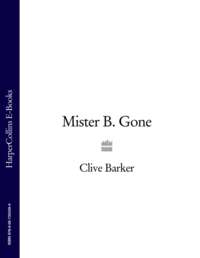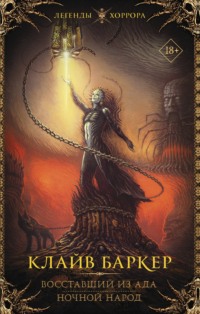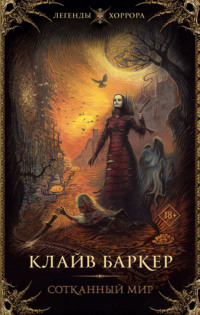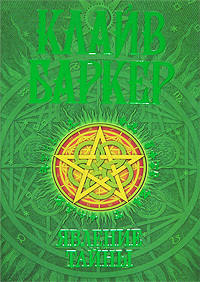
Полная версия
The Great and Secret Show
He couldn’t bring himself to go back to the Dead Letter Room at one-thirty. The medallion and its mysterious signs was burning a hole in his pocket. He had to go back to his lodgings and start the search through his private library of letters now. Without even wasting breath telling Homer, he did just that.
It was a brilliant, sunny day. He drew the curtains against the invasion of light, turned on the lamp with the yellow shade, and there, in a jaundiced fever, began his study, taping the letters with any trace of illustration to the bare walls, and when the walls were full spreading them on the table, bed, chair and floor. Then he went from sheet to sheet, sign to sign, looking for anything that even faintly resembled the medallion in his hand. And as he went, the same thought kept creeping back into his head: that he knew there was an Art, but no Artist, a practice but no practitioner, and that maybe he was that man.
The thought didn’t have to creep for long. Within an hour of perusing the letters it had pride of place in his skull. The medallion hadn’t fallen into his hands by accident. It had come to him as a reward for his patient study, and as a way to draw together the threads of his investigation and finally begin to make some sense of it. Most of the symbols and sketches on the pages were irrelevant, but there were many, too many to be a coincidence, that echoed images on the cross. No more than two ever appeared on the same sheet, and most of these were crude renderings, because none of the writers had the complete solution in their hands the way he did, but they’d all comprehended some part of the jigsaw, and their observations about the part they had, whether haiku, dirty talk or alchemical formulae, gave him a better grasp of the system behind the symbols.
A term that had cropped up regularly in the most perceptive of the letters was the Shoal. He’d passed over it several times in his reading, and never thought much about it. There was a good deal of evolutionary talk in the letters, and he’d assumed the term to be a part of that. Now he understood his error. The Shoal was a cult, or a church of some kind, and its symbol was the object he held in the palm of his hand. What it and the Art had to do with each other was by no means clear, but his long-held suspicion that this was one mystery, one journey, was here confirmed, and he knew that with the medallion as a map he’d find his way from Shoal to Art eventually.
In the meanwhile there was a more urgent concern. When he thought back to the tribe of co-workers, with Homer at its head, he shuddered to think that any of them might ever share the secret he’d uncovered. Not that they had any chance of making any real progress decoding it: they were too witless. But Homer was suspicious enough to at least sniff along the trail a little way, and the idea of anybody – but especially the boor-slob Homer – tainting this sacred ground was unbearable. There was only one way to prevent such a disaster. He had to act quickly to destroy any evidence that might put Homer on the right track. The medallion he’d keep, of course: he’d been entrusted with it by higher powers, whose faces he’d one day get to see. He’d also keep the twenty or thirty letters that had proffered the best information on the Shoal; the rest (three hundred or so) had to be burned. As to the collection in the Dead Letter Room, they had to go into the furnace too. All of them. It would take time, but it had to be done, and the sooner the better. He made a selection of the letters in his room, parcelled up those he didn’t need to keep, and headed off back to the Sorting Office.
It was late afternoon now, and he travelled against the flow of human traffic, entering the Office by the back door to avoid Homer, though he knew the man’s routine well enough to suspect he’d clocked off at five-thirty to the second, and was already guzzling beer somewhere. The furnace was a sweaty rattling antique, tended by another sweaty rattling antique, called Miller, with whom Jaffe had never exchanged a single word, Miller being stone-deaf. It took some time for Jaffe to explain that he was going to be feeding the furnace for an hour or two, beginning with the parcel he’d brought from home, which he immediately tossed into the flames. Then he went up to the Dead Letter Room.
Homer had not gone guzzling beer. He was waiting, sitting in Jaffe’s chair under a bare bulb, going through the piles around him.
‘So what’s the scam?’ he said as soon as Jaffe stepped through the door.
It was useless trying to pretend innocence, Jaffe knew. His months of study had carved knowledge into his face. He couldn’t pass for a naif any longer. Nor – now it came to it – did he want to.
‘No scam,’ he said to Homer, making his contempt for the man’s puerile suspicions plain. ‘I’m not taking anything you’d want. Or could use.’
‘I’ll be the judge of that, asshole,’ Homer said, throwing the letters he was examining down amongst the rest of the litter. ‘I want to know what you’ve been up to down here. ’Sides jerking off.’
Jaffe closed the door. He’d never realized it before, but the reverberations of the furnace carried through the walls into the room. Everything here trembled minutely. The sacks, the envelopes, the words on the pages tucked inside. And the chair on which Homer was sitting. And the knife, the short-bladed knife, lying on the floor beside the chair on which Homer was sitting. The whole place was moving, ever so slightly, like there was a rumble in the ground. Like the world was about to be flipped.
Maybe it was. Why not? No use pretending the status was still quo. He was a man on his way to some throne or other. He didn’t know which and he didn’t know where, but he needed to silence any pretender quickly. Nobody was going to find him. Nobody was going to blame him, or judge him, or put him on Death Row. He was his own law now.
‘I should explain …’ he said to Homer, finding a tone that was almost flippant, ‘… what the scam really is.’
‘Yeah,’ Homer said, his lip curling. ‘Why don’t you do that?’
‘Well it’s real simple …’
He started to walk towards Homer, and the chair, and the knife beside the chair. The speed of his approach made Homer nervous, but he kept his seat.
‘… I’ve found a secret,’ Jaffe went on.
‘Huh?’
‘You want to know what it is?’
Now Homer stood up, his gaze trembling the way everything else was. Everything except Jaffe. All the tremors had gone out of his hands, his guts and his head. He was steady in an unsteady world.
‘I don’t know what the fuck you’re doing,’ Homer said. ‘But I don’t like it.’
‘I don’t blame you,’ Jaffe said. He didn’t have his eyes on the knife. He didn’t need to. He could sense it. ‘But it’s your job to know, isn’t it?’ Jaffe went on, ‘what’s been going on down here.’
Homer took several steps away from the chair. The loutish gait he liked to affect had gone. He was stumbling, as though the floor was tilting.
‘I’ve been sitting at the centre of the world,’ Jaffe said. ‘This little room … this is where it’s all happening.’
‘Is that right?’
‘Damn right.’
Homer made a nervous little grin. He threw a glance towards the door.
‘You want to go?’ Jaffe said.
‘Yeah.’ He looked at his watch, not seeing it. ‘Got to run. Only came down here –’
‘You’re afraid of me,’ Jaffe said. ‘And you should be. I’m not the man I was.’
‘Is that right?’
‘You said that already.’
Again, Homer looked towards the door. It was five paces away; four if he ran. He’d covered half the distance when Jaffe picked up the knife. He had the door handle clasped when he heard the man approaching behind him.
He glanced round, and the knife came straight at his eye. It wasn’t an accidental stab. It was synchronicity. His eye glinted, the knife glinted. Glints collided, and the next moment he was screaming as he fell back against the door, Randolph following him to claim the letter-opener from the man’s head.
The roar of the furnace got louder. With his back to the sacks Jaffe could feel the envelopes nestling against each other, the words being shaken on the pages, ’til they became a glorious poetry. Blood, it said; like a sea; his thoughts like clots in that sea, dark, congealed, hotter than hot.
He reached for the handle of the knife, and clenched it. Never before in his life had he shed blood; not even squashed a bug, at least intentionally. But now his fist on the hot wet handle seemed wonderful. A prophecy; a proof.
Grinning, he pulled the knife out of Homer’s socket, and before his victim could slide down the door stuck it into Homer’s throat to the hilt. This time he didn’t let it lie. He pulled it out as soon as he’d stopped Homer’s screams, and he stabbed the middle of the man’s chest. There was bone there, and he had to drive hard, but he was suddenly very strong. Homer gagged, and blood came out of his mouth, and from the wound in his throat. Jaffe pulled the knife out. He didn’t stab again. Instead he wiped the blade on his handkerchief and turned from the body to think about his next move. If he tried to hump the sacks of mail to the furnace he risked being discovered, and sublime as he felt, high on the boor-slob’s demise, he was still aware that there was danger in being found out. It would be better to bring the furnace here. After all, fire was a moveable feast. All it required was a light, and Homer had those. He turned back to the slumped corpse and searched in the pockets for a box of matches. Finding one, he pulled it out, and went over to the satchels.
Sadness surprised him as he prepared to put a flame to the dead letters. He’d spent so many weeks here, lost in a kind of delirium, drunk with mysteries. This was goodbye to all that. After this – Homer dead, the letters burnt – he was a fugitive, a man without a history, beckoned by an Art he knew nothing about, but which he wished more than anything to practise.
He began to screw up a few of the pages, to provide some initial fodder for the flame. Once begun, he didn’t doubt that the fire would sustain itself: there was nothing in the room – paper, fabric, flesh – that wasn’t combustible. With three heaps of paper made, he struck a match. The flame was bright, and looking at it he realized how much he hated brightness. The dark was so much more interesting; full of secrets, full of threats. He put the flame to the piles of paper and watched while the fires gained strength. Then he retreated to the door.
Homer was slumped against it, of course, bleeding from three places, and his bulk wasn’t that easy to move, but Jaffe put his back into the task, his shadow thrown up against the wall by the burgeoning bonfire behind him. Even in the half minute it took him to move the corpse aside the heat grew exponentially, so that by the time he glanced back at the room it was ablaze from side to side, the heat stirring up its own wind, which in turn fanned the flames.
It was only when he was clearing out his room of any sign of himself – eradicating every trace of Randolph Ernest Jaffe – that he regretted doing what he’d done. Not the burning – that had been altogether wise – but leaving Homer’s body in the room to be consumed along with the dead letters. He should have taken a more elaborate revenge, he realized. He should have hacked the body into pieces, packaged it up, tongue, eyes, testicles, guts, skin, skull, divided piece from piece – and sent the pieces out into the system with scrawled addresses that made no real sense, so that chance (or synchronicity) was allowed to elect the doorstep on which Homer’s flesh would land. The mailman mailed. He promised himself not to miss such ironic possibilities in future.
The task of clearing his room didn’t take long. He had very few belongings, and most of what he had meant little to him. When it came down to basics, he barely existed. He was the sum of a few dollars, a few photographs, a few clothes. Nothing that couldn’t be put in a small suitcase and still leave room alongside them for a set of encyclopedias.
By midnight, with that same small suitcase in hand, he was on his way out of Omaha, and ready for a journey that might lead in any direction. Gateway to the East, Gateway to the West. He didn’t care which way he went, as long as the route led to the Art.
II
Jaffe had lived a small life. Born within fifty miles of Omaha, he’d been educated there, he’d buried his parents there, he’d courted and failed to persuade to the altar two women of that city. He’d left the state a few times, and even thought (after the second of his failed courtships) of retreating to Orlando, where his sister lived, but she’d persuaded him against it, saying he wouldn’t get on with the people, or the incessant sun. So he’d stayed in Omaha, losing jobs and getting others, never committing himself to anything or anybody for very long, and in turn not being committed to.
But in the solitary confinement of the Dead Letter Room he’d had a taste of horizons he’d never known existed, and it had given him an appetite for the open road. When there’d only been sun, suburbs and Mickey Mouse out there he’d not given a damn. Why bother to go looking for such banalities? But now he knew better. There were mysteries to be unveiled, and powers to be seized, and when he was King of the World he’d pull down the suburbs (and the sun if he could) and make the world over in a hot darkness where a man might finally get to know the secrets of his own soul.
There’d been much talk in the letters about crossroads, and for a long time he’d taken the image literally, thinking that in Omaha he was probably at that crossroads, and that knowledge of the Art would come to him there. But once out of the city, and away, he saw the error of such literalism. When the writers had spoken of crossroads they hadn’t meant one highway intersecting with another. They’d meant places where states of being crossed, where the human system met the alien, and both moved on, changed. In the flow and flurry of such places there was hope of finding revelation.
He had very little money, of course, but that didn’t seem to matter. In the weeks that followed his escape from the scene of his crime, all that he wanted simply came to him. He had only to stick out his thumb and a car squealed to a halt. When a driver asked him where he was headed, and he said he was headed as far as he, Jaffe, wanted to go, that was exactly as far as the driver took him. It was as if he was blessed. When he stumbled, there was someone to pick him up. When he got hungry, there was someone to feed him.
It was a woman in Illinois, who’d given him a lift then asked him if he wanted to stay the night with her, who confirmed his blessedness.
‘You’ve seen something extraordinary, haven’t you?’ she whispered to him in the middle of the night. ‘It’s in your eyes. It was your eyes made me offer you the lift.’
‘And offer me this?’ he said, fingering between her legs.
‘Yes. That too,’ she said. ‘What have you seen?’
‘Not enough,’ he replied.
‘Will you make love to me again?’
‘No.’
Every now and then, moving from state to state, he got a glimpse of what the letters had schooled him in. He saw the secrets peeping out, only daring to show themselves because he was passing through and they knew him as a coming man of power. In Kentucky he chanced to witness the corpse of an adolescent being hauled from a river, the body left sprawled on the grass, arms spread, fingers spread, while a woman howled and sobbed beside it. The boy’s eyes were open; so were the buttons of his trousers. Watching from a short distance, the only witness not to be ordered away by the cops (the eyes, again) he took a moment to savour the way the boy was arrayed, like the figure on the medallion, and half wanted to throw himself into the river just for the thrill of drowning. In Idaho, he met a man who’d lost an arm in an automobile accident and while they sat and drank together he explained that he still had feeling in the lost limb, which the doctors said was just a phantom in his nervous system, but which he knew was his astral body, still complete on another plane of being. He said he jerked off with his lost hand regularly, and offered to demonstrate. It was true. Later, the man said:
‘You can see in the dark, can’t you?’
Jaffe hadn’t thought about it, but now that his attention was drawn to the fact it seemed he could.
‘How’d you learn to do that?’
‘I didn’t.’
‘Astral eyes, maybe.’
‘Maybe.’
‘You want me to suck your cock again?’
‘No.’
He was gathering up experiences, one of each, passing through people’s lives and out the other side leaving them obsessed or dead or weeping. He indulged his every whim, going wherever instinct pointed, the secret life coming to find him the moment he arrived in town.
There was no sign of pursuit from the forces of law. Perhaps Homer’s body had never been found in the gutted building, or if it had the police had assumed he was simply a victim of the fire. For whatever reason, nobody came sniffing after him. He went wherever he wanted and did whatever he desired, until he’d had a surfeit of desires satisfied and wants supplied, and it came time for him to push himself over the brink.
He came to rest in a roach-ridden motel in Los Alamos, New Mexico, locked himself in with two bottles of vodka, stripped, closed the curtains against the day, and let his mind go. He hadn’t eaten in forty-eight hours, not because he didn’t have money, he did, but because he enjoyed the light-headedness. Starved of sustenance, and whipped up by vodka, his thoughts ran riot, devouring themselves and shitting each other out, barbaric and baroque by turns. The roaches came out in the darkness, and ran over his body as he lay on the floor. He let them come and go, pouring vodka on his groin when they got too busy there, and made him hard, which was a distraction. He wanted only to think. To float and think.
He’d had all he needed of the physical; felt hot and cold, sexy and sexless; fucked and fucker. He wanted none of that again: at least not as Randolph Jaffe. There was another way to be, another place to feel from, where sex and murder and grief and hunger and all of it might be interesting over again, but that would not be until he’d got beyond his present condition; become an Artist; remade the world.
Just before dawn, with even the roaches sluggish, he felt the invitation.
A great calm was in him. His heart was slow and steady. His bladder emptied of its own accord, like a baby’s. He was neither too hot nor too cold. Neither too sleepy nor too awake. And at that crossroads – which was not the first, nor would be the last – something tugged on his gut, and summoned him.
He got up immediately, dressed, took the full bottle of vodka that remained, and went out walking. The invitation didn’t leave his innards. It kept tugging as the cold night lifted and the sun began to rise. He’d come barefoot. His feet bled, but his body wasn’t of great interest to him, and he kept the discomfort at bay with further helpings of vodka. By noon, the last of the drink gone, he was in the middle of the desert, just walking in the direction he was called, barely aware of one foot moving ahead of the other. There were no thoughts in his head now, except the Art and its getting, and even that ambition came and went.
So, finally, did the desert itself. Somewhere towards evening, he came to a place where even the simplest facts – the ground beneath him, the darkening sky above his head – were in doubt. He wasn’t even sure if he was walking. The absence of everything was pleasant, but it didn’t last. The summons must have pulled him on without his even being aware of its call, because the night he’d left became a sudden day, and he found himself standing – alive, again; Randolph Ernest Jaffe again – in a desert barer even than the one he’d left. It was early morning here. The sun not yet high, but beginning to warm the air, the sky perfectly clear.
Now he felt pain, and sickness, but the pull in his gut was irresistible. He had to stagger on though his whole body was wreckage. Later, he remembered passing through a town, and seeing a steel tower standing in the middle of the wilderness. But that was only when the journey had ended, at a simple stone hut, the door of which opened to him as the last vestiges of his strength left him, and he fell across its threshold.
III
The door was closed when he came round, but his mind wide open. On the other side of a guttering fire sat an old man with doleful, slightly stupid features, like those of a clown who’d worn and wiped off fifty years of slap, his pores enlarged and greasy, his hair, what was left of it, long and grey. He was sitting cross-legged. Occasionally, while Jaffe worked up the energy to speak, the old man raised a buttock and loudly passed wind.
‘You found your way through,’ he said, after a time. ‘I thought you were going to die before you made it. A lot of people have. It takes real will.’
‘Through to where?’ Jaffe managed to ask.
‘We’re in a Loop. A loop in time, encompassing a few minutes. I tied it, as a refuge. It’s the only place I’m safe.’
‘Who are you?’
‘My name’s Kissoon.’
‘Are you one of the Shoal?’
The face beyond the fire registered surprise.
‘You know a great deal.’
‘No. Not really. Just bits and pieces.’
‘Very few people know about the Shoal.’
‘I know of several,’ said Jaffe.
‘Really?’ said Kissoon, his tone toughening. ‘I’d like their names.’
‘I had letters from them …’ Jaffe said, but faltered when he realized he no longer knew where he’d left them, those precious clues that had brought him through so much hell and heaven.
‘Letters from whom?’ Kissoon said.
‘People who know … who guess … about the Art.’
‘Do they? And what do they say about it?’
Jaffe shook his head. ‘I’ve not made sense of it yet,’ he said. ‘But I think there’s a sea –’
‘There is,’ said Kissoon. ‘And you’d like to know where to find it, and how to be there, and how to have power from it.’
‘Yes. I would.’
‘And in return for this education?’ Kissoon said. ‘What are you offering?’
‘I don’t have anything.’
‘Let me be the judge of that,’ Kissoon said, turning his eyes up to the roof of the hut as though he saw something in the smoke that roiled there.
‘OK,’ Jaffe said. ‘Whatever I’ve got that you want. You can have it.’
‘That sounds fair.’
‘I need to know. I want the Art.’
‘Of course. Of course.’
‘I’ve had all the living I need,’ Jaffe said.
Kissoon’s eyes came back to rest on him.
‘Really? I doubt that.’
‘I want to get … I want to get …’ (What? he thought. What do you want?) ‘Explanations,’ he said.
‘Well, where to begin?’
‘The sea,’ Jaffe said.
‘Ah, the sea.’
‘Where is it?’
‘Have you ever been in love?’ Kissoon replied.
‘Yes. I think so.’
‘Then you’ve been to Quiddity twice. Once the first night you slept out of the womb. The second occasion the night you lay beside that woman you loved. Or man, was it?’ He laughed. ‘Whichever.’
‘Quiddity is the sea.’
‘Quiddity is the sea. And in it are islands, called the Ephemeris.’
‘I want to go there,’ Jaffe breathed.
‘You will. One more time, you will.’
‘When?’
‘The last night of your life. That’s all we ever get. Three dips in the dream-sea. Any less, and we’d be insane. Any more –’
‘And?’
‘And we wouldn’t be human.’
‘And the Art?’
‘Ah, well … opinions differ about that.’
‘Do you have it?’
‘Have it?’
‘This Art. Do you have it? Can you do it? Can you teach me?’
‘Maybe.’
‘You’re one of the Shoal,’ Jaffe said. ‘You’ve got to have it, right?’











